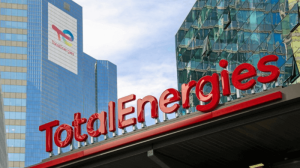A ship-based carbon capture (SBCC) prototype developed under the EverLoNG project has been installed on an LNG-powered LNG carrier owned by energy major, TotalEnergies while in drydock in Spain.

The carbon capture unit was built in the Netherlands by carbon capture solutions provider, Carbotreat.
World Maritime reports that the installation was completed in July 2023 as part of a project led by the Dutch research and development organisation TNO which aims to demonstrate ship-based carbon capture technology and capture CO2 from the ship’s exhaust.
Under the initiative, the project developers aim to capture 10 tonnes of CO2 on board TotalEnergies’ LNG carrier, during a 3000-hour test campaign. The test is expected to provide data on environmental emissions and the impact of motion on capture rates, capture solvent behavior and degradation.
The captured CO2 will be stored onboard as a liquid in a pressurised vessel and off-loaded and transported to an industrial site or stored permanently in the subsurface.
After the trial on TotalEnergies’ LNG carrier, the SBCC equipment will be removed and installed on a second vessel.
Namely, the second campaign of around 500 hours of CO2 capture operations will take place on board Heerema’s LNG-powered Sleipnir crane ship, allowing EverLoNG to compare the system performance on both ships to provide further insights.
The overarching objective of the initiative is to achieve a remarkable 70% reduction in CO2 emissions from ships, with a focus on vessels powered by LNG but not equipped with SBCC. Serving as the baseline comparison, the project aims to demonstrate the substantial impact of SBCC on emissions reduction.
Furthermore, a pivotal facet of the project revolves around enhancing the cost-effectiveness of SBCC. The ambitious target is to drive down the expenses associated with CO2 capture and on-board storage to below 100 €/ton for initial implementations (first of a kind) by the year 2025, and an even more cost-efficient 50 €/ton for subsequent implementations.
Parallel to this, the project is conducting a comprehensive evaluation of the various facets involved in the off-loading, transportation, and storage (or potential utilisation) of captured CO2 within multiple CCUS chains. Simultaneously, rigorous assessment is underway to gauge the impact of SBCC on ships’ infrastructure, stability, and safety. Ensuring the technical viability of the proposed technology is of paramount importance.
Delving deeper, the project developers are also working on refining off-loading strategies encompassing the necessary post-treatment procedures onboard as well as the requisite port-side infrastructure. To facilitate these efforts, EverLoNG has taken a proactive approach by establishing the CO2 Shipping Interoperability Industry Group (CSIIG). Additionally, the project is advocating for a comprehensive roadmap toward the establishment of a robust European off-loading network.
The project involves a collaborative effort of 18 companies consisting of: TNO, Conoship International, VDL Carbon capture, TotalEnergies, Heerema Marine Contractors, Scottish Carbon Capture and Storage, The University of Edinburgh, Anthony Veder, SINTEF, Bureau Veritas Group, Lloyd’s Register, Los Alamos National Laboratory, DNV, Nexant, Carbotreat, Bouman Industries, MAN Energy Solutions, and Forschungszentrum Jülich.
Courtesy: World Maritime News
